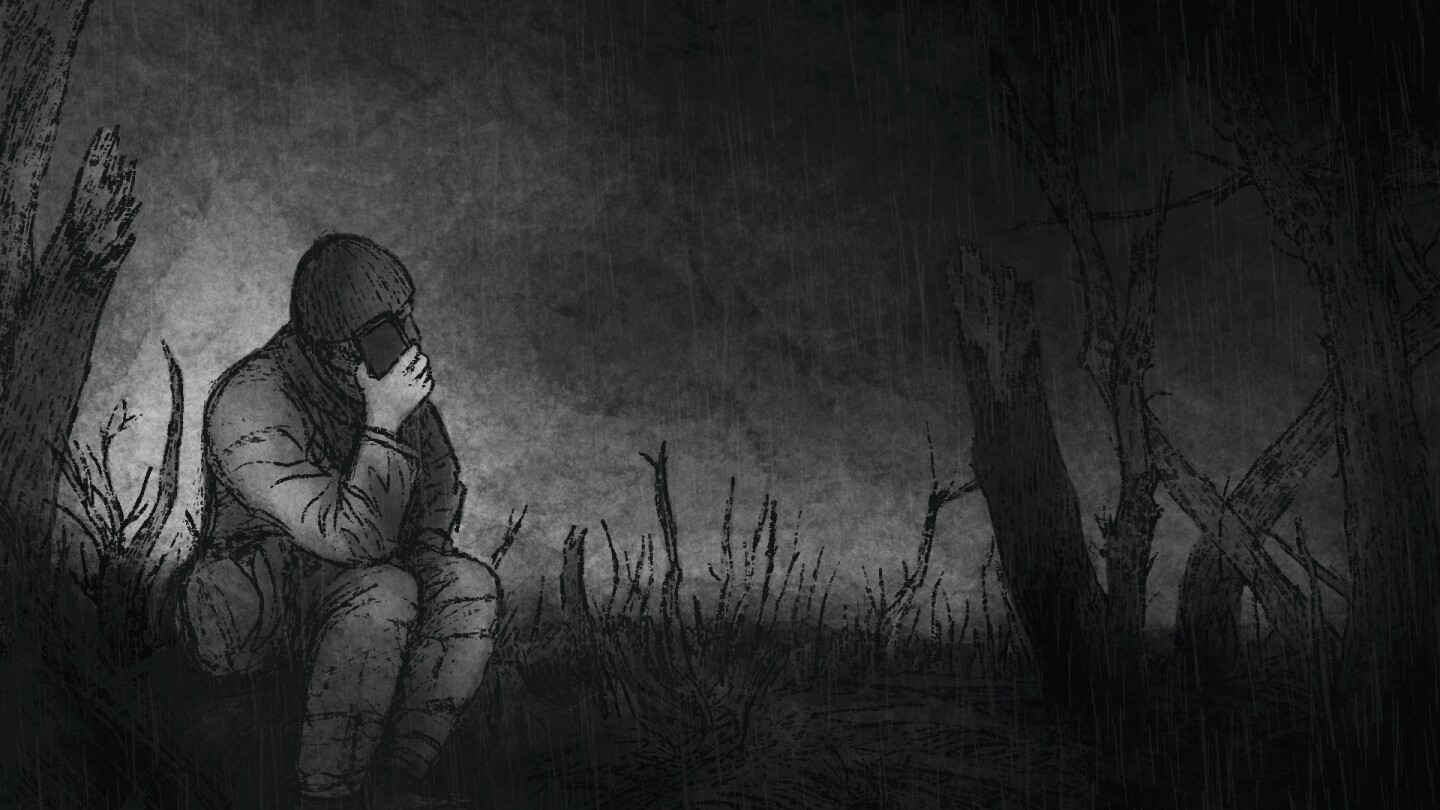In audio intercepts from the front lines in Ukraine, Russian soldiers speak in shorthand of 200s to mean dead, 300s to mean wounded. The urge to flee has become common enough that they also talk of 500s — people who refuse to fight.
As the war grinds into its second winter, a growing number of Russian soldiers want out, as suggested in secret recordings obtained by The Associated Press of Russian soldiers calling home from the battlefields of the Kharkiv, Luhansk and Donetsk regions in Ukraine.
The calls offer a rare glimpse of the war as it looked through Russian eyes — a point of view that seldom makes its way into Western media, largely because Russia has made it a crime to speak honestly about the conflict in Ukraine. They also show clearly how the war has progressed, from the professional soldiers who initially powered Vladimir Putin’s full-scale invasion to men from all walks of life compelled to serve in grueling conditions.
“There’s no f------ ‘dying the death of the brave’ here,” one soldier told his brother from the front in Ukraine’s Kharkiv region. “You just die like a f------ earthworm.”



Seems like every generation has to learn the Old Lie again and again.
https://www.poetryfoundation.org/poems/46560/dulce-et-decorum-est
I can’t help but think most soldiers realize it’s a load of bullshit when they’re choking on their own blood.
Soldiers realize it well before then. The VFW is a club that hopes it withers away from lack of new members.
I mean, it should wither away because clinging to a job you had 40 years ago as your primary identity is weird as fuck.
Remember that a lot of them have PTSD, and they get support from people who went through many of the same things.
They should get real support that helps them move on from their old job, rather than reinforcing an identity that is harming them
Perhaps we could form some kind of club that would create the basis of that support.
That again just reinforces the nonsensical “veteran mindset”
Being in the military is a job. I supporting taking care of veterans the way I support paying teachers vastly more.
It isn’t an identity. It’s just a thing a person did, for compensation, years ago.
Unfathomably naive. Of all “jobs” done for “compensation” the military is the only one where you can be forced against your will to kill or be killed. To watch people die by your hand, to watch your friends die. To watch Innocents die. For some types of trauma not restricted to the military alone, there is no “getting over it”. It lives with you the rest of your life
A thing that only certain people do, and no one outside that small number of people actually realize what it was like and what life is like after. So having a “club” where you can go and hang out with people who actually understand what life was/is like after doing what you did, isn’t a bad thing.
I’ll repeat what another member said above:
This evidence should give you a strong prior that it’s not just a job.
A good way to reduce the mental impact of some mething is reducing it’s power by acknowledging it as the barest fact of what it is
You mean, lying to yourself?
That’s not lying to yourself. It’s the core idea behind CBT (mental health not ball torture).
You accept the reality of the facts as they are and from there can begin to process them with less fear.
Well, this took a turn for the stupid
https://www.bo-alternativ.de/borchert.htm
Thank you for sharing this. I don’t read much poetry, much less in German. But this kept me on the edge of my seat.
Jesus Christ. The first one was beautiful and terrible. This was just naked horror (though part of that was that I’m not a native German speaker, so phrases like “blood-shod” in the first poem might have flown over my head in the second one), but I think it might be more effective for it. I also like that it addresses the populace, more than the politicians/potential soldiers.
Interesting! It‘s the opposite with me, I am not a native English speaker, and I actually didn‘t understand blood-shod. They limp and have blood in their shoes? The pictures that came to my mind reminded me of the Borchert poem. It felt like the adequate reply. I love it for the explicit message: Sag Nein! The horror at its end I find just as horrifying as the Owen poem. Back to back, and we have snapshots of the horrors of WWI, WWII and WWIII.
Shod is basically an archaic form of “shoed,” so it’s soildiers who have worn through their boots and are walking just on blood.
I agree that they’re both incredibly moving and horrifying. I think “Sag Nein!” Reflects the perspective of the German postwar generation on communal guilt, whereas the other is more of an attack on politicians. It seems fitting, based on the wars involved, especially because they’re both calls to action, rather than simply condemnations.
That was a tough read in both ways.